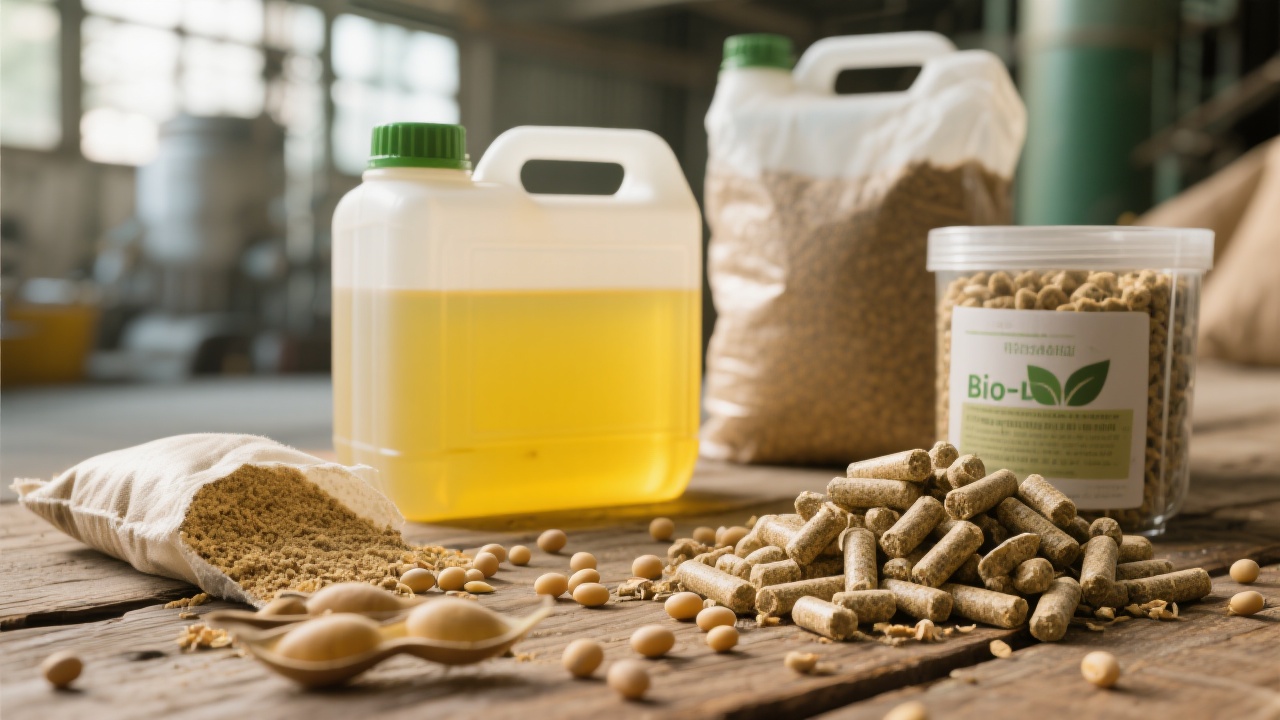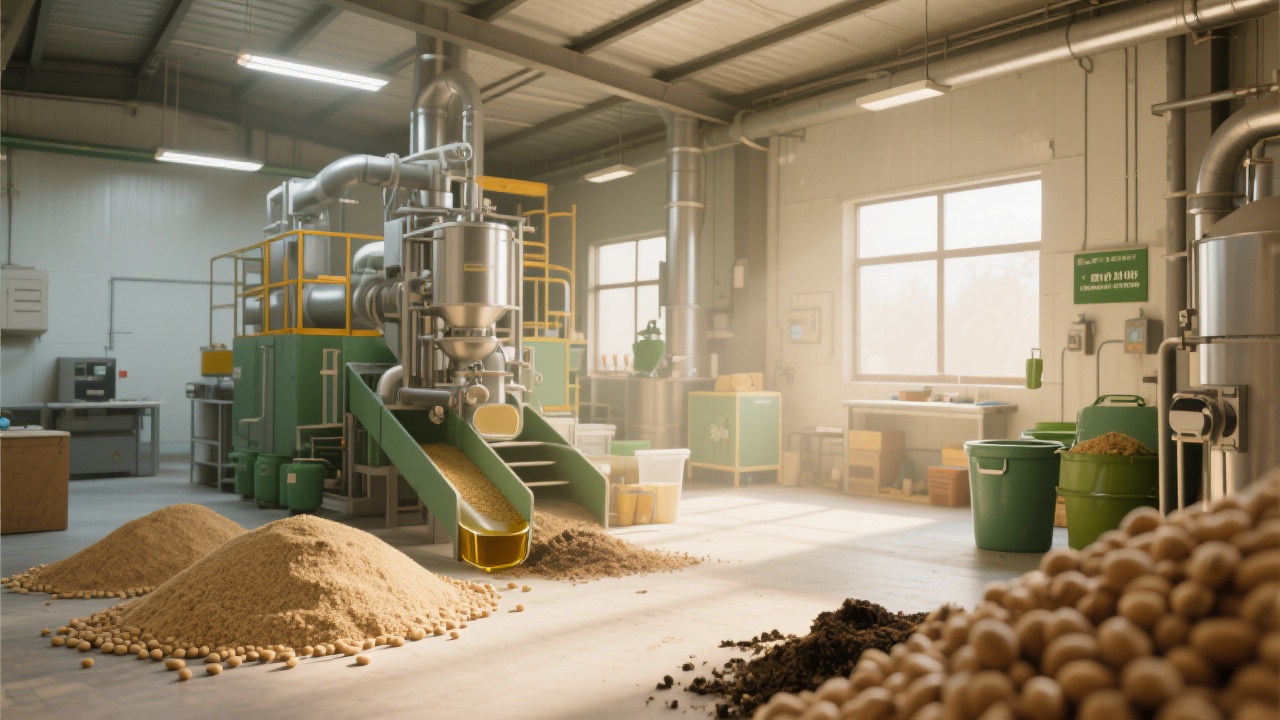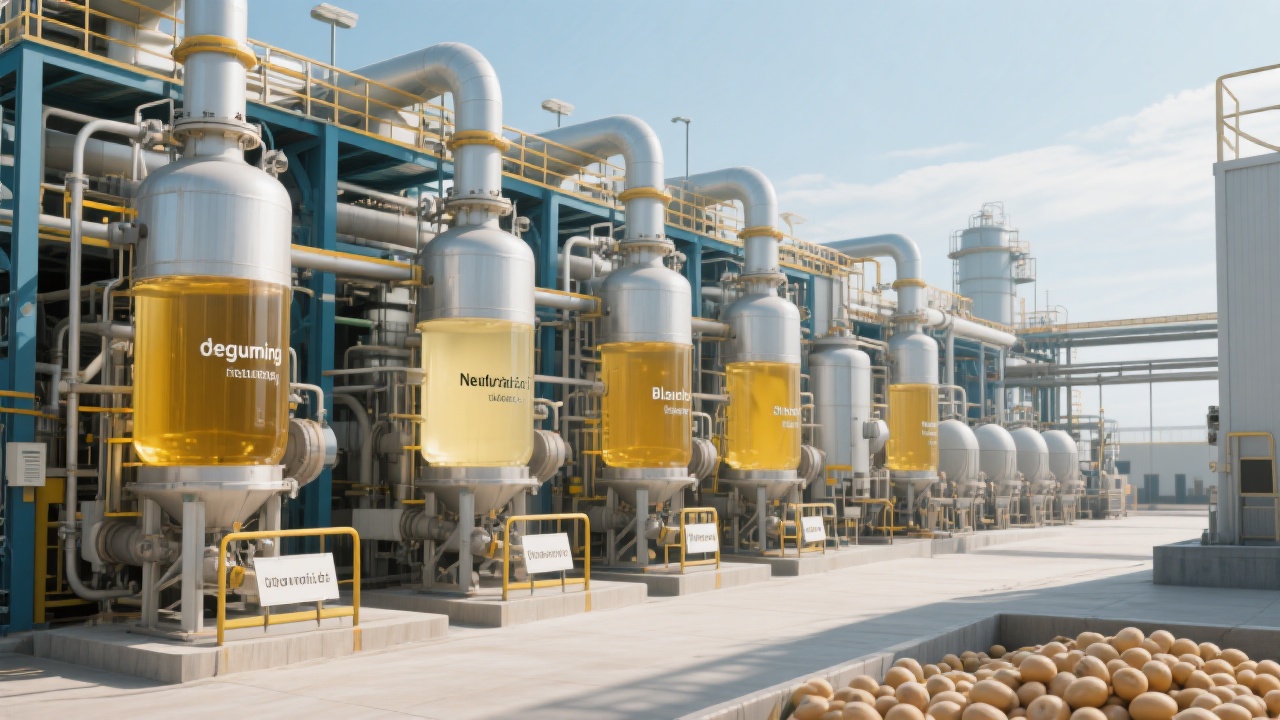
Oil processing technology varies significantly depending on the type of oil being extracted. Whether it's soybean oil, palm oil, or other vegetable oils, each requires a tailored approach to ensure optimal yield and quality. This article explores the key differences in the production processes and highlights how advanced systems can meet the specific needs of various oil types.

The oil extraction process typically includes several critical stages: pre-treatment, crushing, magnetic separation, pressing, and filtration. Each step is essential in determining the final quality and efficiency of the oil produced.
Before any oil can be extracted, the raw materials must undergo pre-treatment. This includes cleaning, drying, and conditioning the seeds or fruits to optimize their physical properties. For example, soybeans are often dried to reduce moisture content to around 8–10%, which enhances the efficiency of the subsequent pressing stage.
After pre-treatment, the material is crushed to increase surface area and facilitate oil release. This step is crucial for oils like palm kernel, where the hard shell must be broken down effectively. Following crushing, magnetic separation removes any metal contaminants, ensuring the purity of the final product.
| Oil Type | Optimal Moisture Content (%) | Pressing Temperature (°C) |
|---|---|---|
| Soybean | 8–10 | 100–120 |
| Palm Kernel | 6–8 | 110–130 |
| Sunflower | 7–9 | 90–110 |

The pressing stage is where the actual oil extraction occurs. Different oils require different pressure and temperature settings to maximize yield without compromising quality. For instance, palm oil processing often involves high-temperature pressing to achieve higher oil recovery rates. After pressing, the crude oil is filtered to remove impurities, ensuring a clear and stable final product.
Modern oil extraction systems are designed to handle multiple oil types efficiently. These systems incorporate features such as variable speed drives, automated control, and real-time monitoring to adapt to different feedstocks. For example, a single system can process both soybeans and sunflower seeds with minimal adjustments, reducing downtime and increasing productivity.

Many leading oil processing companies have successfully implemented multi-oil extraction systems, achieving significant improvements in yield and quality. One case study showed a 15% increase in oil recovery and a 20% reduction in energy consumption after upgrading to an advanced pressing system. Such results highlight the value of investing in modern technology.
For businesses looking to enhance their oil processing capabilities, selecting the right equipment and system is crucial. Our solutions are tailored to meet the unique requirements of various oil types, ensuring maximum efficiency and quality. If you're interested in learning more about our products and services, please contact us today for a detailed consultation.



